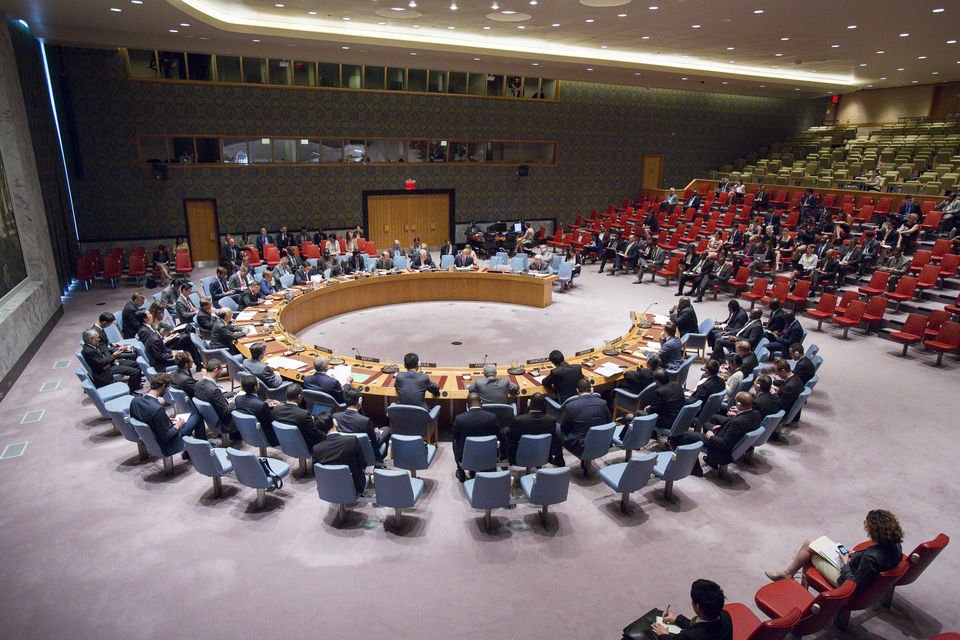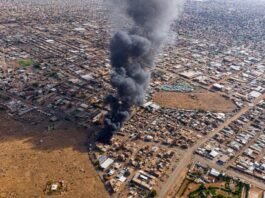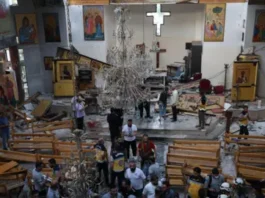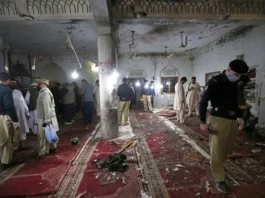Current Situation in Gaza: A Humanitarian Crisis
The humanitarian situation in Gaza has deteriorated significantly, raising alarms among global leaders and humanitarian organizations. UN Secretary-General António Guterres has characterized the crisis as catastrophic, emphasizing the urgent need for international intervention and support. Reports indicate that over two million people are now facing dire circumstances, marked by a severe lack of essential resources such as food, water, and medical supplies. The ongoing conflict has not only caused immense physical destruction but has also led to a psychological toll on the civilian population, particularly among children and vulnerable groups.
Famine-like conditions have been reported throughout the region, with various humanitarian agencies documenting alarming rates of malnutrition and starvation. Over the past weeks, the UN has raised concerns about the inability of aid organizations to provide necessary assistance due to continuous hostilities and blockades. The situation is exacerbated by the fact that many vital infrastructures, such as hospitals and schools, have been severely damaged, further limiting access to crucial services that normally support civilian life.
Moreover, violations of international law continue to compound the suffering experienced by the Palestinian people in Gaza. Reports of disproportionate use of force, targeting of civilians, and destruction of humanitarian aid convoys underscore a growing concern about accountability for actions taken during this conflict. The international community is urging all parties involved to adhere to humanitarian principles and protect civilians amid this ongoing crisis. In summary, the circumstances faced by the people of Gaza represent a profound humanitarian crisis that requires immediate action and cooperation on a global scale to alleviate their suffering and restore peace in the region.
International Reactions and Calls for Action
The ongoing crisis in Gaza has elicited a wide array of reactions from international actors, reflecting both political allegiances and humanitarian concerns. The Palestinian Authority, alongside its allies, has been vocal in demanding an immediate ceasefire. They argue that the escalating violence has resulted in significant civilian casualties and humanitarian crises that necessitate urgent attention. In this context, calls for accountability against Israel for alleged violations of international law have gained momentum, with supporters emphasizing the need to hold all parties accountable to ensure justice.
In contrast, the response from the United States has been markedly different. The U.S. government has repeatedly expressed the view that any actions taken by the UN Security Council should not impede ongoing peace negotiations. This position has drawn criticism from various international observers who argue that blocking ceasefire resolutions undermines the urgent need for peace and exacerbates human suffering. Critics assert that the U.S.’s staunch support for Israel could be complicating efforts to achieve a diplomatic resolution, further polarizing the situation.
Other permanent members of the Security Council, notably China and Russia, have taken a more pronounced stance advocating for the rights of Palestinians. Both nations have called for a halt to hostilities and emphasized the need for a robust international response to the humanitarian crisis. European countries have largely echoed this sentiment, with many expressing support for the establishment of a Palestinian state based on pre-1967 borders, reaffirming their commitment to a two-state solution as the pathway to lasting peace. The growing calls for Palestinian statehood from multiple UN member states highlight a shifting dynamic in international politics regarding the Gaza crisis and underscore the complex weave of interests that characterize this protracted conflict.
Regional Perspectives and Concerns
The ongoing Gaza crisis has elicited varied reactions from regional actors, particularly Arab states and Türkiye, each expressing explicit concerns over the potential escalation of conflict. Historically, Arab nations have conveyed solidarity with the Palestinian plight, and this crisis has prompted renewed calls for punitive actions against Israel. The perception that military operations in Gaza could spiral out of control has resonated deeply within these countries. Leaders from these nations emphasize the urgency of addressing humanitarian needs while suggesting that military aggression must not go unchecked. Many Arab states have thus called for immediate international intervention that aligns with their stance on the conflict.
These regional perspectives are not merely rhetorical; they reflect a significant fear among neighboring countries regarding the implications of unrest in Gaza. The potential for increased instability often results in an influx of refugees, a factor that weighs heavily on nations like Jordan and Egypt, which share borders with the Palestinian territories. Additionally, Türkiye’s strong advocacy for the Palestinian cause highlights its strategic positioning within the context of regional politics. The Turkish government has actively condemned Israel’s actions, pushing for both diplomatic and material support for Gaza’s reconstruction efforts.
The involvement of such regional powers has notable implications for the broader geopolitical landscape. The shared concerns regarding military operations and advocacy for reconstruction form a crucial part of the diplomatic discourse around the conflict. Moreover, these nations’ calls for punitive measures against Israel indicate a broader shift in regional dynamics, with an emphasis on collective action and solidarity among Muslim-majority countries facing shared challenges. Consequently, understanding these perspectives is essential, as they shape both immediate and long-term responses to the Gaza crisis and influence future engagements within the international community.
The Future of Peace: A Divided International Community
The pursuit of peace in the Israeli-Palestinian conflict remains a contentious issue, marked by significant divisions within the international community. Key international players express contrasting positions on the most viable paths toward achieving a sustainable resolution, particularly concerning the long-discussed two-state solution. While many nations advocate for this approach as essential to ensuring security and self-determination for both Israelis and Palestinians, differing interpretations of what constitutes a credible two-state solution complicate the discourse.
The United States has traditionally played a pivotal role in shaping the peace process. However, recent policy shifts have led to increased skepticism about its ability to act as an impartial mediator. The U.S. position often emphasizes the need for negotiations directly between the two parties, yet critics argue that this framework favors outcomes that may not genuinely reflect the aspirations and rights of the Palestinian people. This has sparked dissent among other nations, especially those in the Arab League, who advocate for a more proactive role by international bodies, including the United Nations, to hold Israel accountable for its actions in the occupied territories.
Furthermore, emerging geopolitical dynamics and national interests have resulted in divergent priorities among countries. Some nations prioritize their relationships with Israel, focusing on security cooperation and economic ties, while others remain staunch advocates for Palestinian sovereignty and human rights. This divergence intensifies the urgency for collective action, yet it simultaneously complicates the development of a unified strategy to address the multifaceted challenges of the crisis. The path forward necessitates a willingness among states to navigate these divisions and seek common ground, recognizing that addressing the root causes of the conflict is crucial for sustainable peace.




